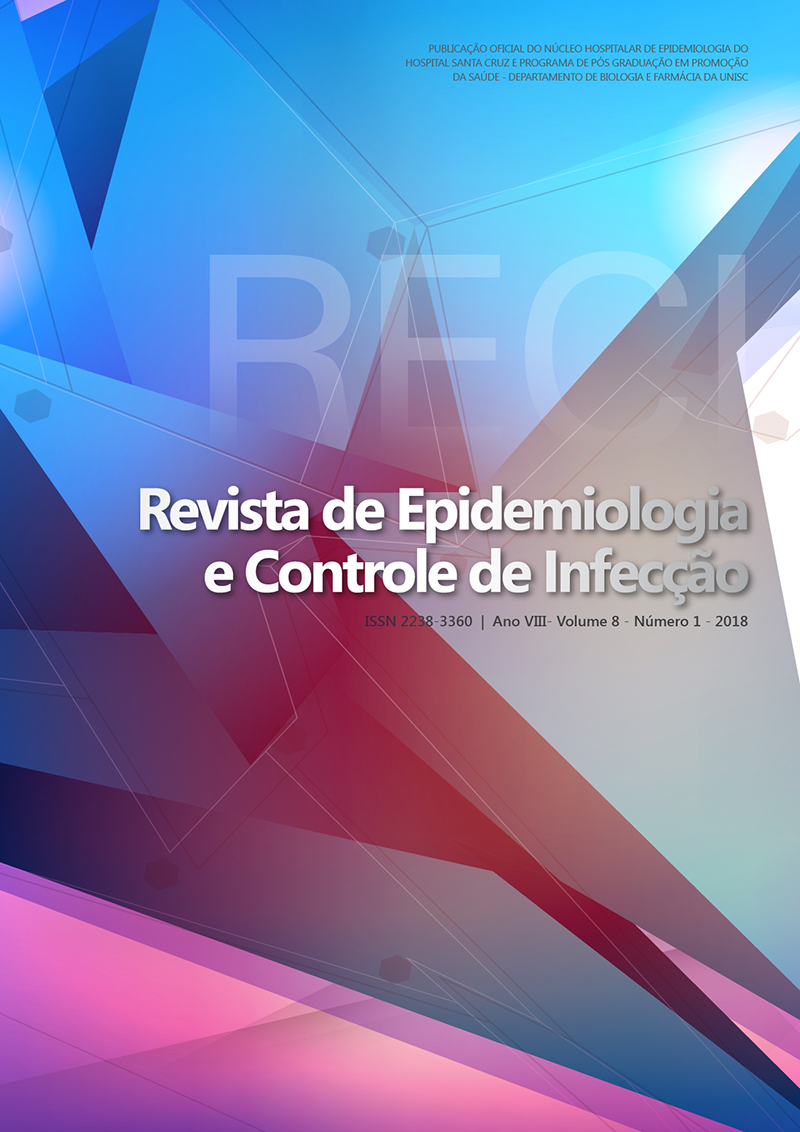Isolation of the first cepa of Klebsiella pneumoniae producer of carbapenemase coded by gene blaNDM: a case study
DOI:
https://doi.org/10.17058/reci.v1i1.9350Abstract
Objectives: The New Delhi metalo β-lactamase gene (blaNDM) can be found in the plasmid of various enterobacteria strains, conferring multidrug resistance to different antimicrobials classes, as well as the easy spread of the gene between these strains. The present study aimed to report the isolation of the first strain of Klebsiella pneumoniae, carbapenemase producer, encoded by the blaNDM gene, of a patient admitted to an Intensive Therapy Unit (ITU) in the west of Paraná. Case description: A male patient, 73 years old, was admitted to the hospital referring abdominal pains, being initiated antibiotic therapy with ciprofloxacin and metronidazole. He underwent several surgical procedures where he evolved to sepsis with development of K. pneumoniae resistant to carbapenems producing carbapenemase encoded by the gene blaNDM that had as an infectious focus an abdominal surgical wound, but he eventually evolved to death. Conclusion: It is inferred that, the confirmation of the resistant strain that produces the carbapenemase of the NDM type and the conduct in locating the focus of the sepsis, as well as the non-response to antimicrobials used and the various surgical complications contributed to the patient evolving to death. It is necessary, therefore, complex studies about strains encoded by the blaNDM gene for a suitable choice of antimicrobials combination that will be effective in treating, actions with the Hospital Infection Control Committee (HICC) that aimed to contain of the different infections, mainly the collection of surveillance culture of these patients in the hospital environment, in order to avoid the selection of strains increasingly resistant to these.Downloads
Downloads
Published
How to Cite
Issue
Section
License
The author must state that the paper is original (has not been published previously), not infringing any copyright or other ownership right involving third parties. Once the paper is submitted, the Journal reserves the right to make normative changes, such as spelling and grammar, in order to maintain the language standard, but respecting the author’s style. The published papers become ownership of RECI, considering that all the opinions expressed by the authors are their responsibility. Because we are an open access journal, we allow free use of articles in educational and scientific applications provided the source is cited under the Creative Commons CC-BY license.


